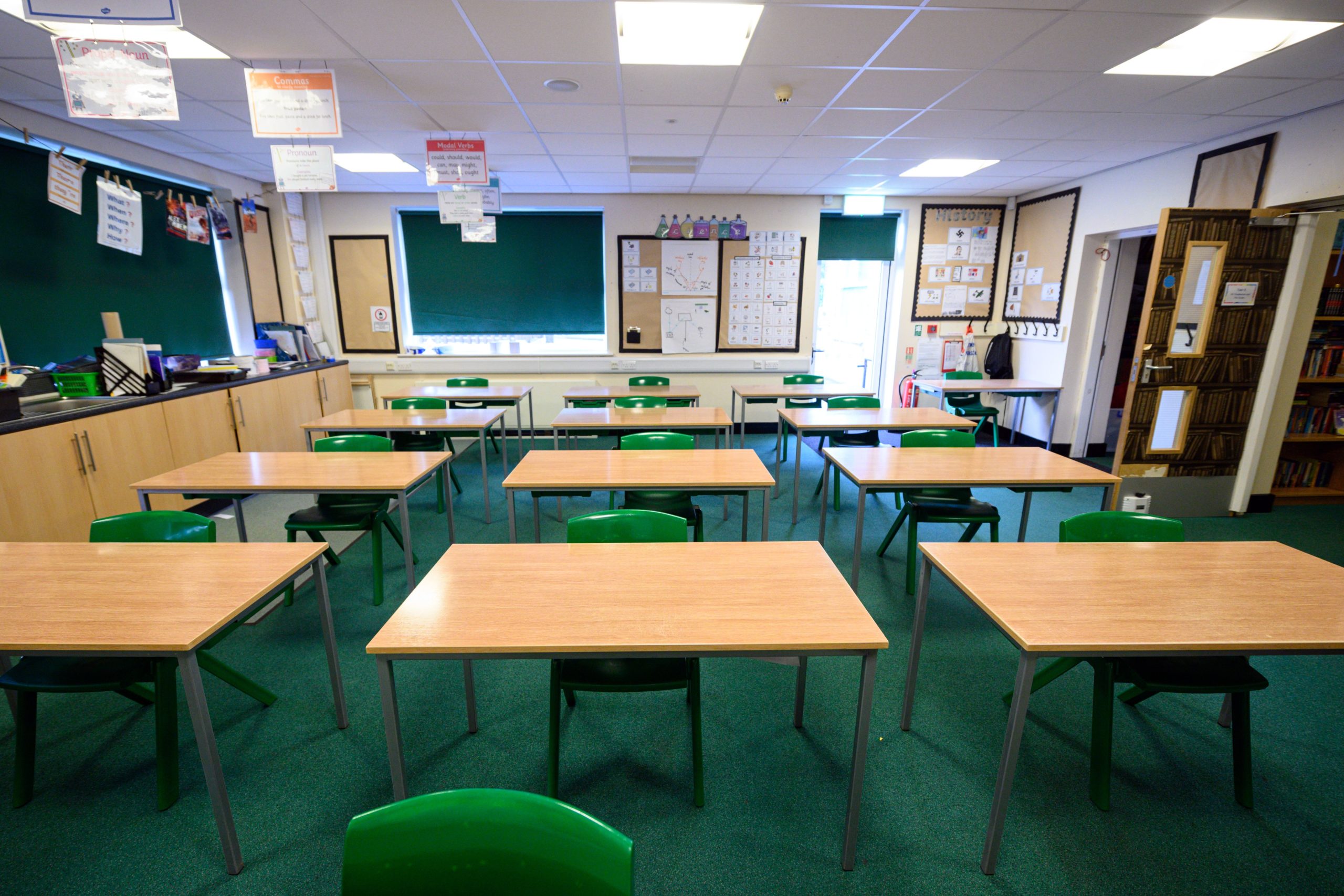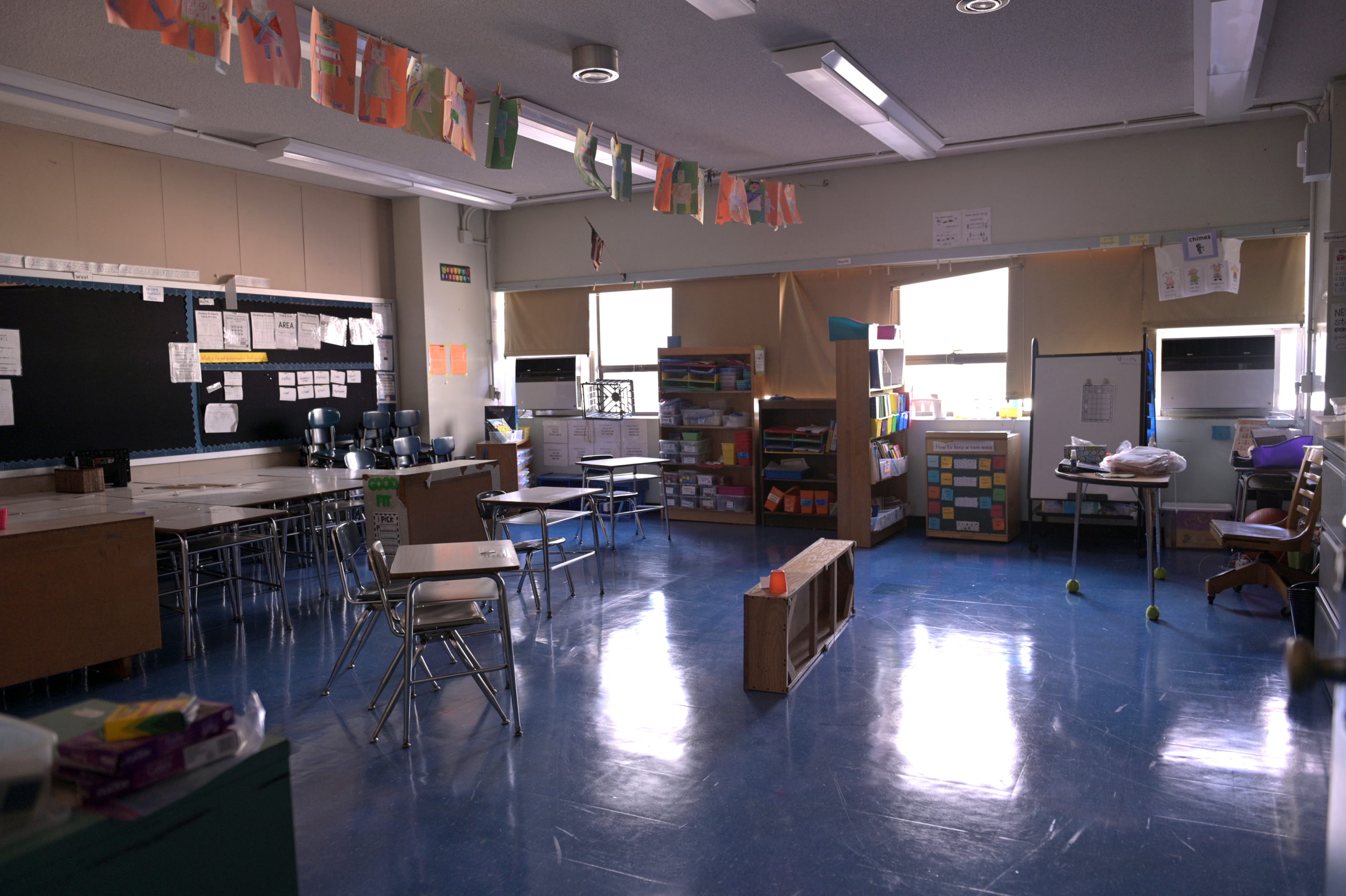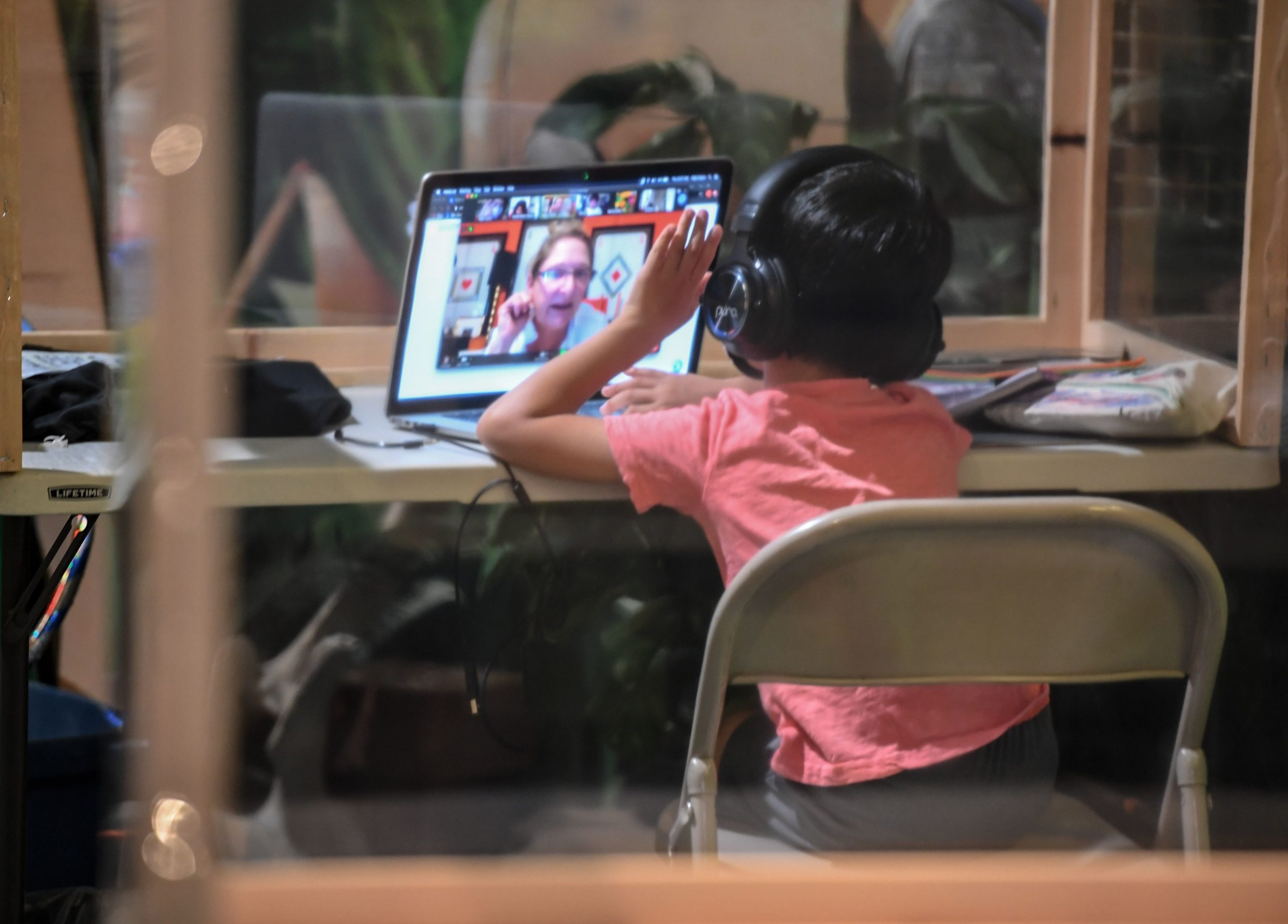Senior year of high school is normally remembered for events like dances, football games and graduation ceremonies. But for seniors completing their final year virtually in the Pittsburgh area, a survey shows a disturbing end to their high school experience, WPXI reported.
Seniors at Pine-Richland High School, located 23 miles north of Pittsburgh, responded to a survey conducted by several parents inquiring about how their remote and hybrid learning experience has been for them since the COVID-19 pandemic caused schools to close. Students described feeling isolated, anxious, depressed and hopeless, according to WPXI, which published the survey answers.
Of the 83 students who participated, more than 50% said remote and hybrid learning is not effective, while nearly all respondents said they felt disconnected from their peers. More than three-quarters of students said they had mental health concerns over the past year, and their concerns included virtual learning and losing extracurricular activities. The fear of COVID-19 itself was at the bottom of the list, WPXI reported.

A classroom is set out with socially distanced seating for year 6 pupils but remains empty due to lack of pupils returning in that year group, at Greenacres Primary Academy in Oldham, northern England on June 18, 2020. (Photo by OLI SCARFF / AFP) (Photo by OLI SCARFF/AFP via Getty Images)
Below are some of the student responses, according to WPXI:
“I’m in marching band and the season that I looked forwards to for 4 years pretty much went up in air. Half of my mock trial team quit due to the online meetings. We have very little to do in art club. I haven’t even heard anything about prom planning committee. It feels like all I do is sit on my computer for 8 hours, go to work, and then go to sleep. I feel so disconnected from myself and from my friends, and I don’t have motivation or passion for anything. In many ways, it feels like I already graduated.”
“My life is very vague and lonely.”
“I’m having trouble finding things to look forward to. School is all there is, and the hybrid/virtual model is miserable.”
“Made me sad and anxious.”
“It had given me a lot less to look forward too and made me less excited about going to school.”
“Losing my junior lacrosse season hurt my mental health. It took away my outlet and way to release stress. Not being able to practice during this preseason is bringing up those same emotions and feelings as last year and I can’t deal with that again.”
“I don’t have anything to look forward to and lost my connection to my friends.”
“It has caused me to become less motivated and struggle with my mental health.”
“I find no interest in anything anymore.”
“With the loss of club meetings and extracurriculars I have felt a loss of connection with my teachers and peers. I also feel anxious when the topic of conversation in every meeting and class is focused on COVID and politics.”
“Depressing to not be active and see peers. Hard to get motivated and do things and weight gain because of lack of activity.”
“There’s nothing to look forward to, I have no motivation for anything. I’m not learning anything especially in my AP classes so I’m going to have to take them again in college and pay more for them. Thanks for ruining senior year.”
“My teachers are trying their best but the virtual model just seems like busy work. It really sucks to have been waiting your entire life to be a senior and you finally get there and the year is ruined with no support from administration except ‘i’m sorry :(‘.
…It feels like they are still stuck on sympathizing with the class of ‘20, which granted they did have it bad and had their senior year abruptly cut off, but we have had absolutely nothing close to normal for our senior year at all and it doesn’t seem like any effort is being made to make anything else later in the year happen or better.
This year has felt like reaching a cliff hanger in the plot and then it just ends.”

NEW YORK, NEW YORK – NOVEMBER 19: A classroom is empty with the lights off on what would otherwise be a blended learning school day on November 19, 2020 at Yung Wing School P.S. 124 in New York City. NYC Mayor Bill DeBlasio had to return the nation’s largest district had to all-remote teaching/learning as of today, with an indefinite outlook for reopening. (Photo by Michael Loccisano/Getty Images)
Amy Terchick, who has twins who are seniors at the school, helped carry out the survey after feeling “like nobody was listening to our kids to see the mental health aspects that were happening,” she told WPXI.
WPXI reached out to the school district, which responded by explaining that the district’s educational program is informed by public health expertise and evolves as “information and conditions have changed.”
In Allegheny County, where the district is located, the director of the health department, Dr. Deborah Bogen, has reported that COVID-19 spread linked to K-12 students never exceeded 10% in the county.
Bogen added that statistics in the county show that students learning in fully remote environments had as many cases as students who were learning in-person or in hybrid models. She said schools were “relatively safe and low-risk behavior,” according to The Pittsburgh Post-Gazette.

A student follows along remotely with their regular school teacher’s online live lesson from a desk separated from others by plastic barriers at STAR Eco Station Tutoring & Enrichment Center on September 10, 2020 in Culver City, California. – (Photo by ROBYN BECK/AFP via Getty Images)
It’s “really important we think about that as we consider our return-to-school policies,” she said.
Data accumulated globally has shown that infections did not surge when schools reopened. Even when community transmission was high, coronavirus outbreaks in schools were still uncommon especially if precautions were in place, according to Nature. (RELATED: ‘We Are Breaking’: Parents Describe How Virtual Learning Has Traumatized Their Children)
The National Alliance on Mental Illness reports that the lack of social interaction that can negatively affect adults is also found to cause or exacerbate mental health conditions in children up to a decade later. Virtual learning has upended the critical sense of stability in children’s lives that can come from established learning schedules, seeing peers, or participating in extracurricular activities, leading to a sense of alienation among students.


